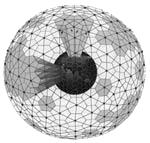
The internet has become a vast system for the evolution of conceptual
memes of information. Mankind's evolved tendency to relish rumour, to gravitate towards gossip becomes viral in the
hyperreal communities of cyberspace. As raw information becomes the only commodity worth coveting in the globalised melting pot we call society
Wikipedia has transmogrified into the internet's hive-mind equivalent. Encyclopedias cower at the mere mention of this monolith of knowledge; intellectuals who have made careers on the personal acquisition of clever sounding nonsense burn their textbooks and commit themselves to a life of burbling vowel sounds not yet attached to a semantic referent. Meanwhile the Wiki-universe blossoms forth all manner of intelligent hyper-banter and the internet masses await the day when all human knowledge is just a Boolean search string away from their grasp...
Could the Wikipedia community be a symbol for something greater than the sum of its component parts? Is it possible to discover future truths about the very nature of cultural identity from assessing how it is affected by Wikipedia and internet systems like it?
Superseding IdentityThe Huge Entity's recent '
Reasons Why 'You' Don't Exist...' feature called into question the very nature of your personal identity, but mentioned very little about
identity in a self-referential context. Past examinations of such concepts have often lead me towards assessing the
Simulacrum:
"...a copy of a copy which has been so dissipated in its relation to the original that it can no longer be said to be a copy. The simulacrum, therefore, stands on its own as a copy without a model..." - See more on Simulacrum here

and the ancient Eastern Philosophy of
Mu:
"...a word which can be roughly translated as "without" or "have not". While typically used as a prefix to imply the absence of something, it is more famously used as a response to certain koans and other questions in Zen Buddhism, intending to indicate that the question itself was wrong..." - See more on Mu here
But oftentimes I come across theories and concepts which wripple with a sense of 'Mu' the referent 'Simulacrum' fails to explain. What is the label for an entity or idea which began as nothing and in the process of its examination became real through its own fictional-identity? Notions diametrically opposed to simulacra -
'Mu-lacra' perhaps?
Wikipedia has come to supersede its referent, in that much of what appears amongst its pages would never have been printed in an old-school encyclopedic compendium. In this regard Wikipedia is a simulacrum of its former ideal-self - an entity beyond the boundaries of which knowledge loses strict definition in cyberspace. Indeed news events can be followed in the pages of Wikipedia as they unfold in the real world! Any quick glance at the
Wikipedia Front Page will show you this...
As the internet becomes the closest data-referent to 'reality' the Wikipedia hive-mind has the potential to evolve towards a state of
hyper-reference - it not only contains all information regarded as purposeful to a common understanding of reality,
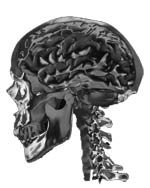
but much information which is purposeful exactly because it
lacks any reference with reality. These 'Mu-lacra' take forms not possible in pre-internet cultures, and on occasion only achieve hyper-reality through the shear breadth of their non-existence.
I believe that the internet is slowly changing the way the modern human brain perceives identity. This change encompasses not just our personal individuality, but the structure of knowledge itself and it is in communal data systems, such as Wikipedia and the equally hyperreal Flickr, that my original question can find a foothold...
What exactly is this Mu-lacra nonsense?There is a category of entities that refer to utterly hyper-real concepts. Many of these concepts, once relegated to flourish in small, close-knit communities, find infinite nourishment in the data-rich soils of the internet. Below I have drawn up a list of such constructs which have made themselves known to me through Wikipedia's
Unusual Articles page. Examine them carefully and consider for a moment in what ways the hyper-reality of these entities is due entirely to the viral, hive-mind-like nature of cyber-culture:
- Suicide Squid is the name of a fictional comic book superhero. He is in fact so fictional that not only does he not exist, but neither does any comic book about him. He was accidentally created in April 1991 when Mitsuhiro Sakai, upon being asked in the internet newsgroup rec.arts.comics (r.a.c.) for his opinion on developments in the series Suicide Squad, asked what those developments were but typed "i" instead of "a" in "Squad".
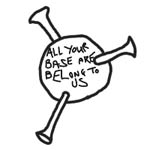
- The zeroth item is the initial item of a sequence, if that sequence is numbered beginning from zero rather than one. This kind of numbering is common in computer systems, and so hackers and computer scientists often use zeroth where others might use first, and so forth.
- The Invisible Pink Unicorn (IPU) is the goddess of a satiric parody religion aimed at theistic beliefs, which takes the form of a unicorn that is paradoxically both invisible and pink.
- The Flying Spaghetti Monster (FSM) is the subject of a satirical website created by Bobby Henderson in 2005 to protest the decision by the Kansas State Board of Education to require the teaching of intelligent design as an alternative to biological evolution. On the site, Henderson facetiously professes belief in a supernatural Creator entity that resembles spaghetti and meatballs and suggests that Flying Spaghetti Monsterism should be taught in science classrooms.
But it doesn't end here. The above list is but a sub-set of Mu-Lacrum in a greater collection of Mu-Lacra. Here are some more examples of non-entities which found meaning before/outside of internet culture, but which now find deeper significance in the pages of Wikipedia:
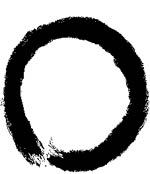
(hover for a brief explanation)
This list of course could, and indeed will, go on indefinitely...
What I find interesting here is not that these concepts simply exist (indeed all popular cultures and organised Religions could be said to be based on original non-entity memes such as these), but the way in which Wikipedia, in referencing them, has brought their in-existence deeper clarity. Were it not for the community lead nature of Wikipedia, and similar 'Web 2.0' systems, the above knowledge would have been passed off as close to worthless - certainly no professional encyclopedia editor would have allowed such ideas to be printed - an action akin to the devaluation of the 'higher forms' of knowledge all encyclopedia editors must wade through in pursuit of referential perfection. And yet here they reside, available for all at the merest click of a button.
 Could Wikipedia at its broadest boundaries be a metaphor for the future of human society? Take away our cultural memes and humanity would quickly revert to the simple cultures seen in our monkey and ape relatives. It was the evolution of language which bound humanity into a shared consciousness - a cultural brain which did more thinking than any individual identity could do alone. And now, at the start of a cultural revolution as wide sweeping as the internet, humanity, I believe, faces its next evolution towards shared awareness. Language took the self sufficient tribal strongholds of the African savannah and exploded their potential into the many multifaceted cultures we see around us today. If Mu-lacra continue to be absorbed so readily into the hive-mind of cyberspace what does this suggest for the nature of human realities yet to be realised?
Could Wikipedia at its broadest boundaries be a metaphor for the future of human society? Take away our cultural memes and humanity would quickly revert to the simple cultures seen in our monkey and ape relatives. It was the evolution of language which bound humanity into a shared consciousness - a cultural brain which did more thinking than any individual identity could do alone. And now, at the start of a cultural revolution as wide sweeping as the internet, humanity, I believe, faces its next evolution towards shared awareness. Language took the self sufficient tribal strongholds of the African savannah and exploded their potential into the many multifaceted cultures we see around us today. If Mu-lacra continue to be absorbed so readily into the hive-mind of cyberspace what does this suggest for the nature of human realities yet to be realised?
Memetic Potential We are still at a stage where referencing these memetic, viral non-entities allows us to recognise their distinction from objective truth. Over the next few years as the internet becomes ever more a totality of culture rather than simply a referent the lines bordering reality, hyper-reality and pure imagination will dissolve around us. I would go so far as to suggest that many generations from now cyber-entities once labeled 'human' will find it impossible to distinguish what was past-real, what is present-hyper-real and what will never be real in the seething masses of datum the internet will have become.  Present day archeology and anthropology commit themselves to the study of past-human groups which had no substantial cultural changes for many thousands of years. Future such Mu-ologies will be so deeply embedded in these interweaving cyber-realities that history itself will have to be forgotten in order that the present have any identity. The pace of cultural evolution in this 'imagined' future will be so great that any entity still capable of assessing broad sweeping patterns of consciousness will have to commit themselves to tracking change as it happens. The future of Wikipedia, and systems like it, will be to log, conceptualise and realise reality in real-time. No-one within the cyber systems destined to encompass this world will be able to see anything but Mu-lacra-like concepts buzzing around their digital heads.
Present day archeology and anthropology commit themselves to the study of past-human groups which had no substantial cultural changes for many thousands of years. Future such Mu-ologies will be so deeply embedded in these interweaving cyber-realities that history itself will have to be forgotten in order that the present have any identity. The pace of cultural evolution in this 'imagined' future will be so great that any entity still capable of assessing broad sweeping patterns of consciousness will have to commit themselves to tracking change as it happens. The future of Wikipedia, and systems like it, will be to log, conceptualise and realise reality in real-time. No-one within the cyber systems destined to encompass this world will be able to see anything but Mu-lacra-like concepts buzzing around their digital heads.
Foaming Fantasies 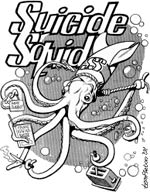 If this all appears but a nonsense to you, the foaming fantasies of an internet non-entity, reflect for a moment on the distinction between your life as you read this and the life you had, say, 15 years ago. In this article I have used various references which had no existence then. If I transport myself back to that time - the body and mind of a 9 year old the conceptual shell awaiting my imaginary re-entry - many of the links above would have been unthinkable jokes. That a simple typing error on a community message board could spawn into existence an imaginary comic-book parody (Suicide Squid) is one thing for my pre-pubescent mind to grasp - that this imaginary comic book was still referenced 15 years later, and had its own article on the most popular communal encyclopedia in the world is quite another!
If this all appears but a nonsense to you, the foaming fantasies of an internet non-entity, reflect for a moment on the distinction between your life as you read this and the life you had, say, 15 years ago. In this article I have used various references which had no existence then. If I transport myself back to that time - the body and mind of a 9 year old the conceptual shell awaiting my imaginary re-entry - many of the links above would have been unthinkable jokes. That a simple typing error on a community message board could spawn into existence an imaginary comic-book parody (Suicide Squid) is one thing for my pre-pubescent mind to grasp - that this imaginary comic book was still referenced 15 years later, and had its own article on the most popular communal encyclopedia in the world is quite another!
Project yourself 15 - 20, even 30, years from now my friends and imagine, if you will, a world as magnificently hyper-real as the one outlined above. If you can imagine it, even in corporeal, mysterious forms, I suggest that not only could it happen but that ever more greater events will conspire to eclipse its merest possibility. The internet is the closest thing humanity has yet to a global hive-mind. Enjoy the freedom it still allows, for in all likelihood its structure, many years hence, will be as much as part of you as the thought you have just attained that The Huge Entity is a reeling website of insanity.
The era of Mu-Lacrum is upon us!
Skip to comments...
Further Reading
The past articles below expand on some of these ideas further and may fill in the conceptual gaps obvious in the above post:
And for you Flickr fans please check out my very own Simulacrum Group-Pool for images of simulacrum, hyper-real photography and simulated weirdness.
Let The Huge Entity be your brain's hyperreality playground..... |
Categories: Sci-Fi, Weird, Science?, Future, Reality, Internet, Human, Evolution, Ideas, Consciousness, Wikipedia, Memes, Mu, Simulacrum, Singularity, Nonsense?
 Now accepting submissions to The 29th Meeting of The Skeptics' Circle. Please send me links to articles of sceptical origin, whether written, read or remembered by Wednesday at the very latest.
Now accepting submissions to The 29th Meeting of The Skeptics' Circle. Please send me links to articles of sceptical origin, whether written, read or remembered by Wednesday at the very latest.
 Links
Links























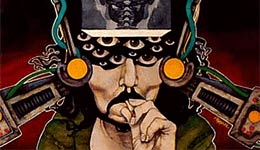

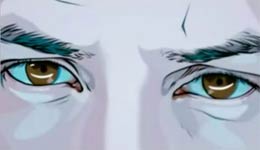
















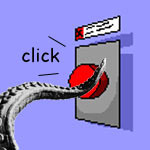



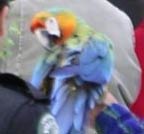









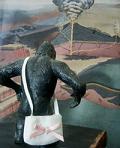



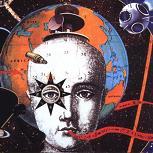

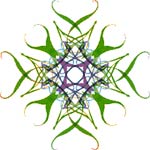

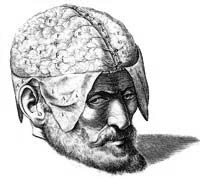
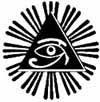


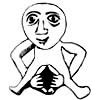

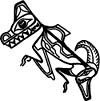
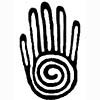

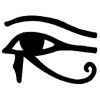
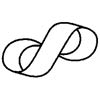
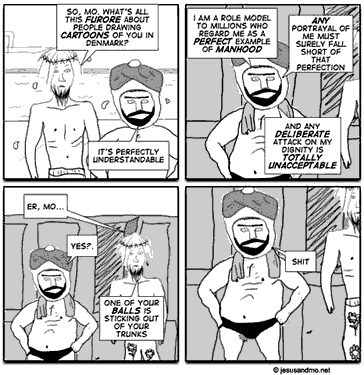

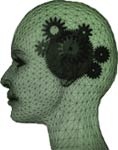
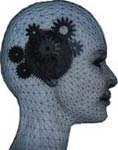

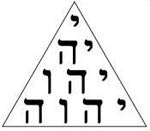
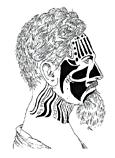
 Subscribe via RSS!
Subscribe via RSS!













 Via Email
Via Email

